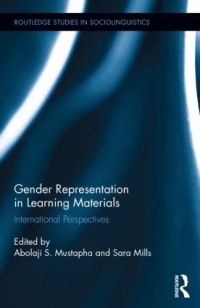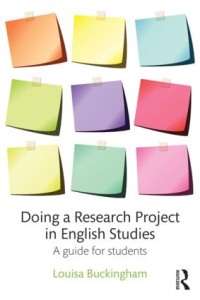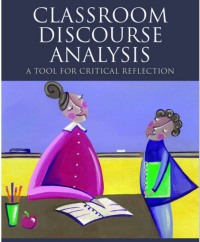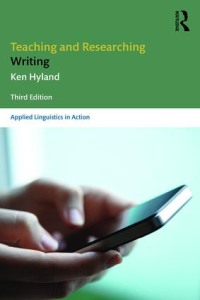New Books from Routledge
Menu
Gender Represenations in Learning Materials
Doing a Research Project in English Studies
Classroom Discourse Analysis
Teaching and Researching Writing
Edited by Abolaji S. Mustapha, Sara Mills
© 2016 – Routledge
250 pages

Representations of gender in learning materials convey an implicit message to students about attitudes towards culturally appropriate gender roles for women and men. This collection takes a linguistic approach to exploring theories about gender representation within the sphere of education and textbooks, and their effects on readers and students within an international context.
In the opening section, contributors discuss theories of representation and effect, challenging the conventional Althusserian model of interpellation, and acknowledging the challenges of applying Western feminist models within an international context. Following chapters provide detailed analyses focusing on a number of different countries: Australia, Japan, Brazil, Finland, Russia, Hong Kong, Nigeria, Germany, Qatar, Tanzania, and Poland. Through linguistic analysis of vocabulary associated with women and men, content analysis of what women and men say in textbooks, and discourse analysis of the types of linguistic moves associated with women and men, contributors evaluate the extent to which gendered representations in textbooks perpetuate stereotypical gender roles, what the impact may be on learners, and the ways that both teachers and learners interact and engage with these texts.
By Louisa Buckingham
© 2016 – Routledge
204 pages

Doing a Research Project in English Studies is the essential guide to undertaking research and developing academic English literacy skills for students new to research. With a particular focus on the needs of students in contexts where English is used as a foreign or an additional language, this accessible textbook takes the reader through the research process in five main sections:
- getting started (arriving at a topic, interacting with a supervisor);
- finding bibliographic resources;
- collecting data;
- developing academic writing skills;
- preparing for the oral defence.
Each chapter contains exercises; the answer key facilitates independent study throughout. Extracts from published research articles provide invaluable illustration of the features of academic writing. This is a must-have resource for advanced undergraduate and postgraduate students embarking on a research project in English studies.
By Betsy Rymes, Betsy Rymes
© 2016 – Routledge
248 pages

This second edition of Classroom Discourse Analysis continues to make techniques widely used in the field of discourse analysis accessible to a broad audience and illustrates their practical application in the study of classroom talk, ideal for upper-level undergraduate and graduate students in discourse analysis, applied linguistics, and anthropology and education. Grounded in a unique tripartite "dimensional approach," individual chapters investigate interactional resources that model forms of discourse analysis teachers may practice in their own classrooms while other chapters provide students with a thorough understanding of how to actually collect and analyse data. The presence of a number of pedagogical features, including activities and exercises and a comprehensive glossary help to enhance students‘ understanding of these key tools in classroom discourse analysis research.
Features new to this edition reflect current developments in the field, including:
- increased coverage of peer interaction in the classroom
- greater connecting analysis to curricular and policy mandates and standards-based reform movements
- sample excerpts from actual student classroom discourse analysis assignments
- a new chapter on the repertoire approach, an increasingly popular method of analysis of particular relevance to today’s multilingual classrooms
By Ken Hyland
© 2016 – Routledge
300 pages

This third edition of Teaching and Researching Writing continues to build upon the previous editions’ work of providing educators and practitioners in applied linguistics with a clearly written and complete guide to writing research and teaching. The text explores both theoretical and conceptual questions, grapples with key issues in the field today, and demonstrates the dynamic relationship between research and teaching methods and practice. This revised third edition has been reorganized to incorporate new topics, including discussions of technology, identity, and error correction, as well as new chapters to address the innovative directions the field has taken since the previous edition’s publication. Boxes throughout, including "Concepts" and "Quotes", help to both reinforce readers’ understanding of the topics covered by highlighting key ideas and figures in the field, while the updated glossary and resource sections allow readers to further investigate areas of interest. This updated edition of Teaching and Researching Writing is the ideal resource for language teachers, practitioners, and researchers to better understand and apply writing research theories, methods, and practices.



|